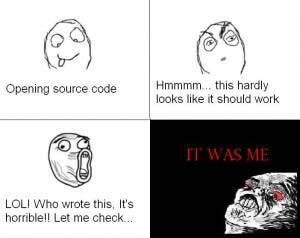Information Security News: Call for Papers: Cyber Security in International Relations.
Forwarded from: Brent Kesler <bdkesler (at) nps.edu> Call for Papers: Cyber Security in International Relations Submissions due: February 1, 2011 Strategic Insights, an online journal published by the Center on Contemporary Conflict at the Naval Postgraduate School, is seeking scholarly papers on the role that cyber security and information and communications technology (ICT) play in international relations and the strategic thinking of state and nonstate actors. This issue of SI seeks to inform policy makers and military operators of lessons drawn from real-world experience with computer and IT issues. We seek assessment and analysis based on real-world events, not speculation regarding potential threats and perceived vulnerabilities. Papers that test or develop political theories and concepts are encouraged. We hold a broad definition of cyber security, and encourage submissions on a range of ICT topics related to threats to national security and individual liberties, responses to such threats from states and non-state actors, and emerging issues offering an over-the-horizon view of cyber security. However, all submissions should be empirically based; we do not intend to publish work purely devoted to editorial opinion, threat anticipation, or policy advocacy. Submissions therefore should attempt to map capabilities based on available sources or game out real-world implications based on empirical data; any "digital Pearl Harbor" scenarios should attempt to measure the extent of the damage--tangible, social, or political--that could occur. Sample Topics: * Use of cyber attacks to influence government behavior (e.g., 2007 Estonia attacks) * Cyber attacks as a force multiplier in conventional conflicts (e.g., 2008 Georgia attacks) * Internet as a critical resource for political and social movements (e.g., the Green Movement in Iran, electioneering in Moldova, Red Shirt Movement in Thailand) * Governments' efforts to contain popular movements that organize via IT (e.g., shutting down or containing flash mobs, Chinese monitoring of the Dalai Lama, software filtering and surveillance technologies) * The role of information technology strategies in the US and other states' foreign policy (e.g., US State Department intervention to prevent Twitter shut-down during protests following the 2009 Iranian elections) * Regional cyber-conflicts (e.g., North and South Korea, India and Pakistan, Israelis and Palestinians) * Espionage and secrecy in a networked world (e.g., China and Google, Wikileaks) * Information technologies, civil liberties and privacy (e.g., RIM Blackberry and Chinese, Indian and US efforts at surveillance; Wikileaks; the Safe Harbor dispute) * Strategic implications of cyber attacks against critical infrastructures * Innovative cyber attacks (e.g., Stuxnet and the Iranian nuclear program) * International cooperation to manage cyber-security and IT issues (e.g., Internet governance, WSIS, ICANN, WIPO) Submission Details: Submissions should be addressed to SI Editor Brent Kesler and sent in MS Word compatible format to ccc (at) nps.edu. They should range from 10 to 20 pages, double spaced, or 3,000 to 6,000 words. For more information on submission guidelines, please consult: http://www.nps.edu/Academics/Centers/CCC/Research-Publications/StrategicInsights/submissions.html
Time to put on the big thinking hat!
